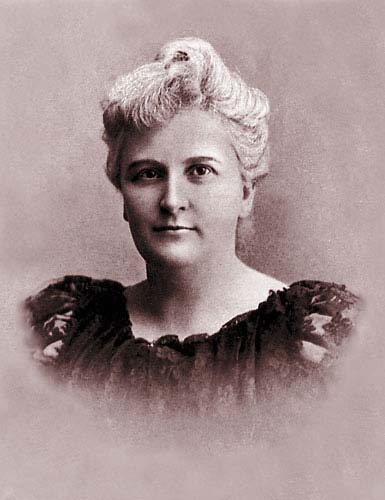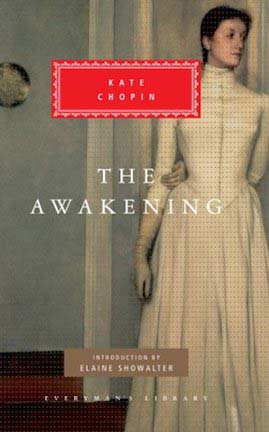Quotes from The Awakening by Kate Chopin
By Aiyana Edmund | On October 4, 2018 | Updated September 24, 2024 | Comments (0)

The Awakening is an 1899 novella depicting one woman’s struggle against societal expectations in her role as a wife and mother. Following this introduction, you’ll find a collection of quotes from The Awakening by Kate Chopin.
It tells the story of Edna Pontellier, a woman with unfulfilled sexual desires who questions the sanctity of marriage and motherhood. The theme of marital infidelity is approached from the unique perspective of the wife.
The Awakening was silenced by brutal reviews in newspapers and literary publications from coast to coast. Just a few years after publication, it fell out of print. Chopin was disheartened by its reception and her writings dwindled after its publication. It didn’t help that she died prematurely in 1905.
for several decades before being rediscovered in the late 1960s. It’s now considered a classic of feminist fiction. And rather absurdly, it made the list of the American Library Association’s 100 most banned books for the years 2010–2019.
In her analysis of The Awakening, Sarah Wyman writes that it “came under immediate attack when published and was banned from bookstores and libraries. The author died virtually forgotten, yet The Awakening has been rediscovered and holds a secure and prominent position as a watershed text in U.S. literature and feminist studies.” You can read the full text of The Awakening on this site.
. . . . . . . . . .
“She was becoming herself and daily casting aside that fictitious self which we assume like a garment with which to appear before the world.”
. . . . . . . . . .
“I would give up the unessential; I would give up my money, I would give up my life for my children; but I wouldn’t give myself. I can’t make it more clear; it’s only something I am beginning to comprehend, which is revealing itself to me.”
. . . . . . . . . .
“He could see plainly that she was not herself. That is, he could not see that she was becoming herself and daily casting aside that fictitious self which we assume like a garment with which to appear before the world.”
. . . . . . . . . .
“The voice of the sea is seductive; never ceasing, whispering, clamoring, murmuring, inviting the soul to wander for a spell in abysses of solitude; to lose itself in mazes of inward contemplation. The voice of the sea speaks to the soul. The touch of the sea is sensuous, enfolding the body in its soft, close embrace.”
. . . . . . . . . .
You might also like: Willa Cather’s Review of The Awakening
. . . . . . . . . .
“A certain light was beginning to dawn dimly within her — the light which, showing the way, forbids it.”
. . . . . . . . . .
“Who can tell what metals the gods use in forging the subtle bond which we call sympathy, which we might as well call love.”
. . . . . . . . . .
“To be an artist includes much; one must possess many gifts — absolute gifts — which have not been acquired by one’s effort. And, moreover, to succeed, the artist must possess the courageous soul.”
. . . . . . . . . .
“I don’t mind walking. I always feel so sorry for women who don’t like to walk; they miss so much — so many rare little glimpses of life; and we women learn so little of life on the whole.”
. . . . . . . . . .
“There are some people who leave impressions not so lasting as the imprint of an oar upon the water.”
. . . . . . . . . .
“She was still under the spell of her infatuation. She had tried to forget him, realizing the inutility of remembering. But the thought of him was like an obsession, ever pressing itself upon her.”
. . . . . . . . . .
“It was not that she dwelt upon details of their acquaintance, or recalled in any special or peculiar way his personality; it was his being, his existence, which dominated her thought, fading sometimes as if it would melt into the mist of the forgotten, reviving again with an intensity which filled her with an incomprehensible longing.”
. . . . . . . . . .

. . . . . . . . . .
“The voice of the sea is seductive, never ceasing, whispering, clamoring, murmuring, inviting the soul to wander in abysses of solitude; to lose itself in mazes of inward contemplation.”
. . . . . . . . . .
“She had all her life long been accustomed to harbor thoughts and emotions which never voiced themselves.”
. . . . . . . . . .
“One of these days,” she said, “I’m going to pull myself together for a while and think – try to determine what character of a woman I am, for, candidly, I do not know. By all the codes which I am acquainted with, I am a devilishly wicked specimen of the sex. But some way I can’t convince myself that I am. I must think about it.”
. . . . . . . . . .
“And, moreover, to succeed, the artist much possess the courageous soul.”
. . . . . . . . . .
“Perhaps it is better to wake up after all, even to suffer, rather than to remain a dupe to illusions all one’s life.”
. . . . . . . . . .
“She reminded him of some beautiful, sleek animal waking up in the sun.”
. . . . . . . . . .
“She felt as if a mist had been lifted from her eyes, enabling her to look upon and comprehend the significance of life, that monster made up of beauty and brutality.”
. . . . . . . . . .
“It was going to be a beautiful morning, I remember thinking, as I left the house; soft and close, bursting with whispered promises, as only a daybreak in early summer can be.”
. . . . . . . . . .
“She was seeking herself and finding herself in just such sweet, half-darkness which met her moods. But the voices were not soothing that came to her from the darkness and the sky above and the stars. They jeered and sounded mournful notes without promise, devoid even of hope.”
. . . . . . . . . .

Kate Chopin on her writing life: On Certain Brisk, Bright Days
. . . . . . . . . .
“Sometimes I feel this summer as if I were walking through the green meadow again, idly, aimlessly, unthinking and unguided.”
. . . . . . . . . .
“There was with her a feeling of having descended in the social scale, with a corresponding sense of having risen in the spiritual.
. . . . . . . . . .
“It seems to me if I were young and in love I should never deem a man of ordinary caliber worthy of my devotion.”
. . . . . . . . . .
“She was happy to be alive and breathing, when her whole being seemed to be one with the sunlight, the color, the odors, the luxuriant warmth of some perfect Southern day.”
. . . . . . . . . .
“Don’t stir all the warmth out of your coffee; drink it.”
. . . . . . . . . .
“And Nature takes no account of moral consequences, of arbitrary conditions which we create, and which we feel obliged to maintain at any cost.”
. . . . . . . . . .
“She felt no interest in anything about her. The street, the children, the fruit vender, the flowers growing there under her eyes, were all part and parcel of an alien world which had suddenly become antagonistic.”
. . . . . . . . . .
“Then the candor of the woman’s whole existence, which every one might read, and which formed so striking a contrast to her own habitual reserve—this might have furnished a link. Who can tell what metals the gods use in forging the subtle bond which we call sympathy, which we might as well call love.”
. . . . . . . . . .
“She was becoming too familiar for her own comfort and peace of mind. It was not despair; but it seemed to her like life was passing her by, leaving its promise broken and unfulfilled.”
. . . . . . . . . .
“But the beginning of things, of a world especially, is necessarily vague, tangled, chaotic, and exceedingly disturbing.”
. . . . . . . . . .
“She says a wedding is one of the most lamentable spectacles on earth.”
. . . . . . . . . .
“It was not despair, but it seemed to her as if life were passing by, leaving its promises broken and unfulfilled. Yet there were other days when she listened, was led on and deceived by fresh promises which her youth had held out to her.”
. . . . . . . . . .
“She turned her face seaward to gather in an impression of space and solitude, which the vast expanse of water, meeting and melting with the moonlit sky, conveyed to her excited fancy. As she swam she seemed to be reaching out for the unlimited in which to lose herself.”
. . . . . . . . . .

Leave a Reply